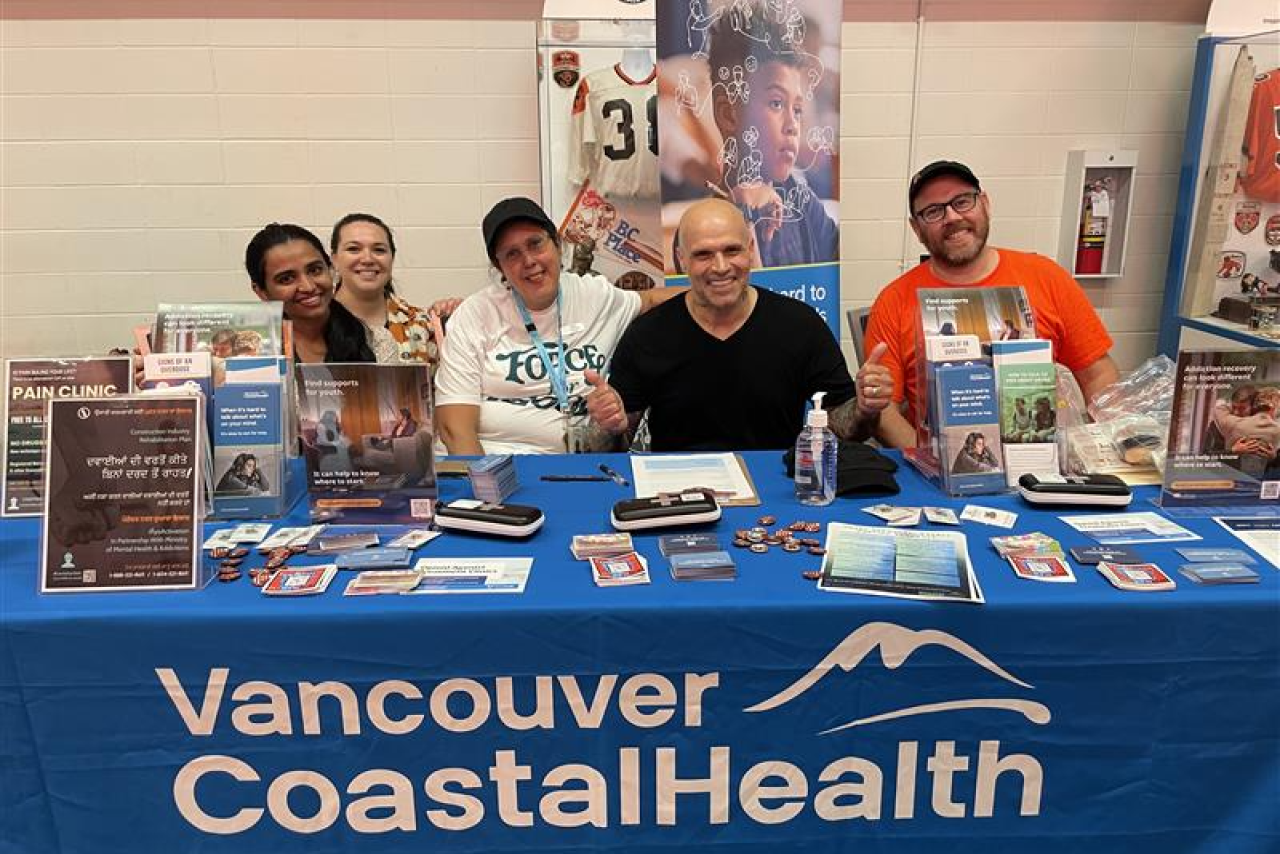Story
VCH builds awareness of mental-health and substance-use services at B.C. Lions game

Vancouver Coastal Health’s team showed B.C. Lion’s fans how to prevent overdose deaths using a naloxone kit.
“I wouldn’t be alive today without harm reduction,” said Guy Felicella, who survived two decades of being homeless, multiple life-threatening bone infections, and six drug overdoses, and now works as a peer clinical advisor with VCH.
Felicella spent Saturday July 13 sharing his lived experience as part of the team on the concourse of the B.C. Lions game alongside colleagues from VCH and the Construction Industry Rehabilitation Plan.
According to the most recent B.C. Coroner Service statement, more than 14,000 British Columbians have been fatally poisoned by illicit drugs since a public health emergency was declared in 2016. Of the victims who were employed at the time of their deaths, more than half worked in the trades, in transport, or as equipment operators.
Felicella advocates for people who suffer with addiction, educates on the importance of a full spectrum of care from harm reduction to recovery, and works to eliminate the stigma that exists around drug addiction.
He spoke with Lions’ fans about how to access to treatment and recovery services such as Junction, Road to Recovery (R2R), Recovery Café, and Access Central.
Rounding out the team with Felicella were VCH’s Sebastien Payan, Parv Sales, and Emina Dervisevic, joined by Alensia Ma and Hetvi Desai from Construction Industry Rehabilitation Plan.
Payan, VCH Regional Addiction Program Lead, trained table visitors on how to use a naloxone kit to reverse overdose.
“First, if someone is unconscious, then call 9-1-1. If you suspect an overdose, ensure your surroundings are safe for you to administer CPR and the antidote, and ensure you are as calm as possible,” he said.
Payan educates on using the naloxone kit, showing how to use the mouth-to-mouth barrier, safely open the opioid antidote, and administer the injection.
“If you have concerns that the patient isn’t responding to the first dose,” he said, “continue doing CPR and you may administer another dose without causing harm to the patient.”
The naloxone kit comes with protective gloves, a mouth-to-mouth barrier device, three doses of naloxone, and three syringes. Visit Toward the Heart for naloxone kit information.
The Construction Industry Rehabilitation Plan crew spoke with visitors on how to start a conversation with a friend you suspect may be struggling with alcohol use who works in the construction industry. And they shared information on the opioid-free pain clinic.
Sales, a clinical coordinator for withdrawal management services at Vancouver Detox, also joined the VCH team for the day providing resources to families especially about talking to youth about substance use and mental health.
“One of the most rewarding aspects of my work allows me to support the families and loved ones of those who use substances. And as a nurse prescriber, I am able to prescribe opioid agonist treatments, which reduces the risk of overdoses and saves lives,” says Sales.
To learn more about overdose response, naloxone kits and training, visit: Overdose response, Naloxone and training | Vancouver Coastal Health (vch.ca)


